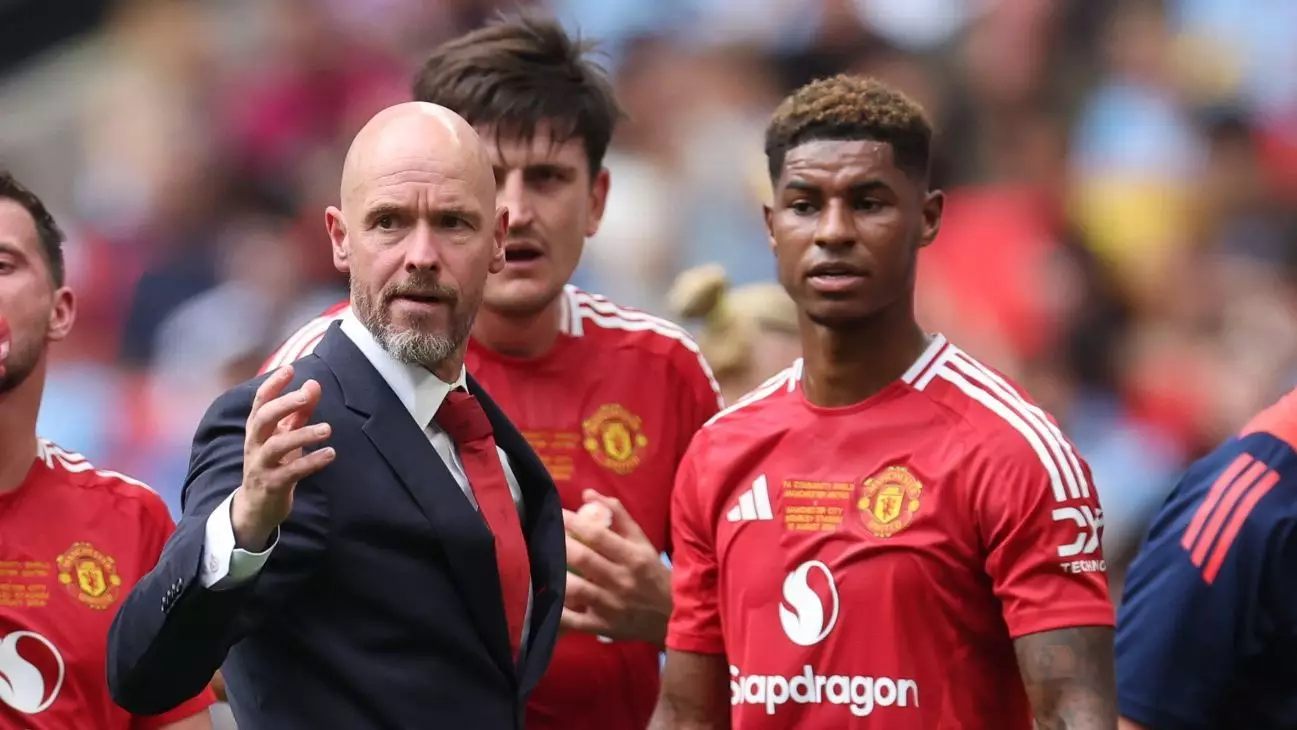In the high-stakes world of Premier League football, decisions made by managers often come under intense scrutiny, especially when it concerns key players. Manchester United’s Erik ten Hag is currently navigating these choppy waters, particularly in relation to his treatment of forward Marcus Rashford. After the Red Devils’ lackluster 0-0 draw against Crystal Palace, a wave of speculation arose regarding the reasoning behind Rashford being benched.
Ten Hag’s choice to rotate his squad has stirred considerable debate among fans and commentators alike. United had just come off a promising week where Rashford not only scored his first goal since March in a 3-0 victory over Southampton but further showcased his talents with a double in a resounding 7-0 win against Barnsley. Given his current form, many expected Rashford to be a starter against Palace. Instead, he found himself sitting on the sidelines, leading to speculations about the dynamics between the player and coach. The draw with Palace, where United dominated in the first half but failed to convert clear chances, only added to the criticism.
The decision to rotate players is often rooted in the necessity for maintaining squad fitness over a long season. Ten Hag defended his choice vehemently, asserting that it was strictly related to rotation and game management rather than any rift with Rashford. “It’s crazy,” he commented on the rampant speculation, emphasizing the importance of media figures understanding the dynamics of the team before making judgments. Balancing player fitness, performance, and the demands of a congested fixture schedule presents a complex challenge for any manager.
While Ten Hag’s rationale may be sound from a strategic standpoint, the immediate outcomes tell a different story. Alejandro Garnacho, who took Rashford’s place, missed vital opportunities that Rashford might have converted, leading to further frustrations among supporters. The optics of Rashford being left on the bench, particularly as he was repeatedly shown by cameras, added a layer of drama to the situation. In a sport where confidence can waver just with an expression, such public perception can have lasting effects on team morale and individual players’ motivations.
As Manchester United prepares for its upcoming matches, including an Europa League fixture against FC Twente and a Premier League clash against Tottenham, the pressure is on Ten Hag to strike the right balance. Will he revert to his previous star, Rashford, or maintain a strategy that may confuse the fans? The answers may be pivotal not only for Rashford’s performance but for the overall trajectory of United’s season.
Ultimately, while rotation is a necessary aspect of modern football, it must be communicated effectively to minimize speculation and maintain team unity. Ten Hag’s challenge will lie in finding this equilibrium while also ensuring that performance on the pitch reflects the potential of one of the league’s most storied clubs.


Leave a Reply